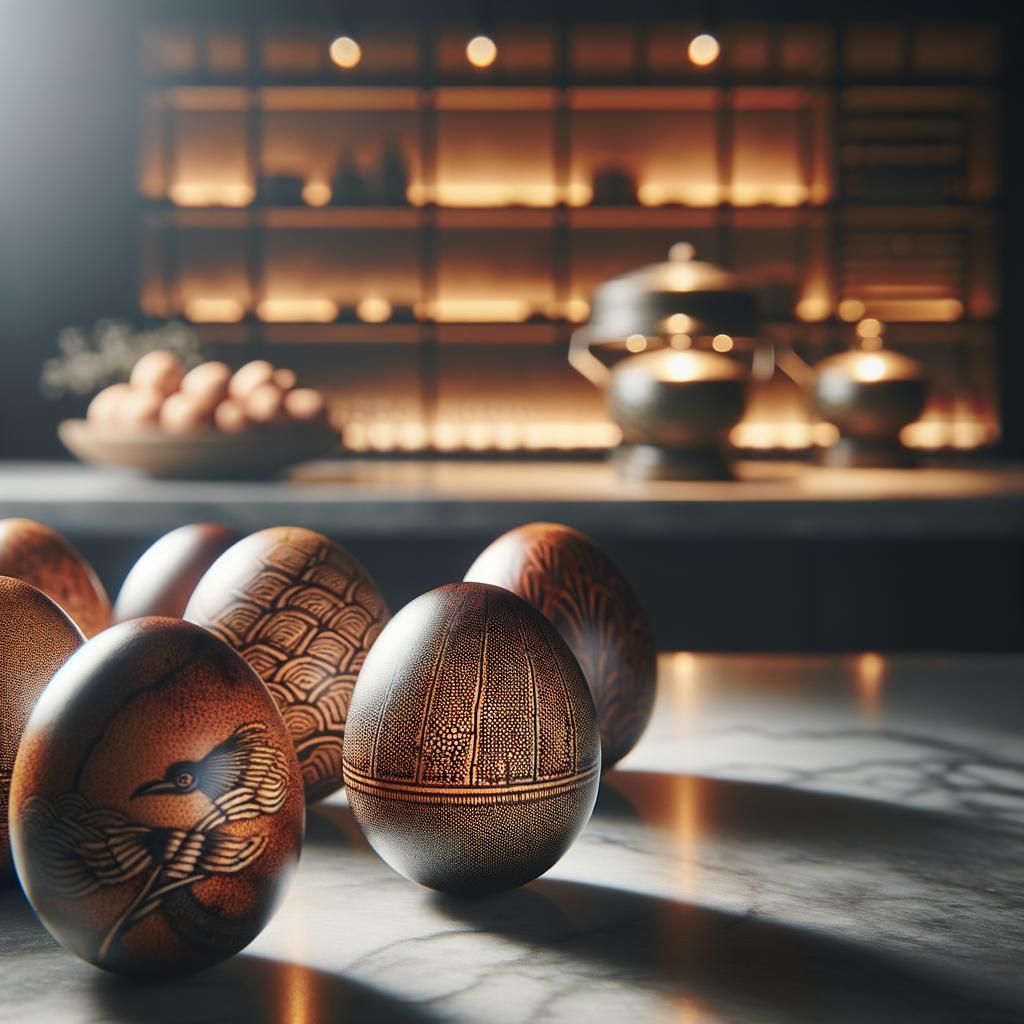Century Eggs

Description
Century eggs, also known as pidan or thousand-year eggs, are a unique delicacy originating from China. At first glance, they may seem like a piece of abstract art rather than an edible treat. The exterior shell of the egg is covered in a mixture of clay, ash, salt, quicklime, and rice hulls, giving it a distinctive, rustic appearance. The interior, once revealed, showcases a dark, translucent, amber-like egg white and a creamy, grayish-green yolk.
Their texture is just as extraordinary as their appearance. The yolk, rich and creamy, has a custard-like consistency, while the egg white, though visually akin to amber jelly, has a firm, gelatinous feel to it. The flavor profile is complex and robust, with a hint of sulfur and ammonia, a touch of umami, and a slight sweetness that lingers on the palate, setting them apart from ordinary eggs.
Primary Uses
Century eggs are a versatile ingredient in Chinese cuisine, often featured in appetizers, main dishes, and even desserts. They can be enjoyed on their own, sliced thinly and drizzled with a touch of sesame oil and soy sauce, or incorporated into congee (rice porridge), providing a contrasting texture and flavor to the mild, comforting dish. They are also a key component in "pidan tofu", a delicate dish where the eggs are paired with silken tofu and a savory sauce.
Beyond culinary uses, century eggs hold cultural significance in China, where they are often given as gifts during the Dragon Boat Festival as a symbol of good luck and prosperity.
History
The origins of century eggs date back to the Ming Dynasty, over 600 years ago. Legend has it that a homeowner discovered duck eggs in a shallow pool of slaked lime, a substance used in construction. After tasting the naturally preserved eggs, the unique flavor was appreciated, and the method was replicated, thus giving birth to this unusual delicacy.
Over time, the popularity of century eggs has grown, spreading to various parts of Asia and beyond. They are now a beloved element in global fusion cuisine, adding a unique twist to salads, canapés, and even pasta dishes.
Nutritional Information
Century eggs are not only a culinary delight but also a nutritional powerhouse. They are rich in protein, essential amino acids, and minerals such as selenium and phosphorus. The unique preservation process increases the bioavailability of these nutrients, making them easier for the body to absorb compared to regular eggs.
Despite their high nutritional value, century eggs should be enjoyed in moderation due to their high sodium content. Compared to regular eggs, they contain significantly more sodium, which could pose a risk for individuals with high blood pressure or heart conditions.
In the grand tapestry of food history, century eggs stand out as a testament to human ingenuity and the magic of culinary transformation. They encapsulate the beauty of food preservation and the ability to turn simple, everyday ingredients into extraordinary delicacies.

